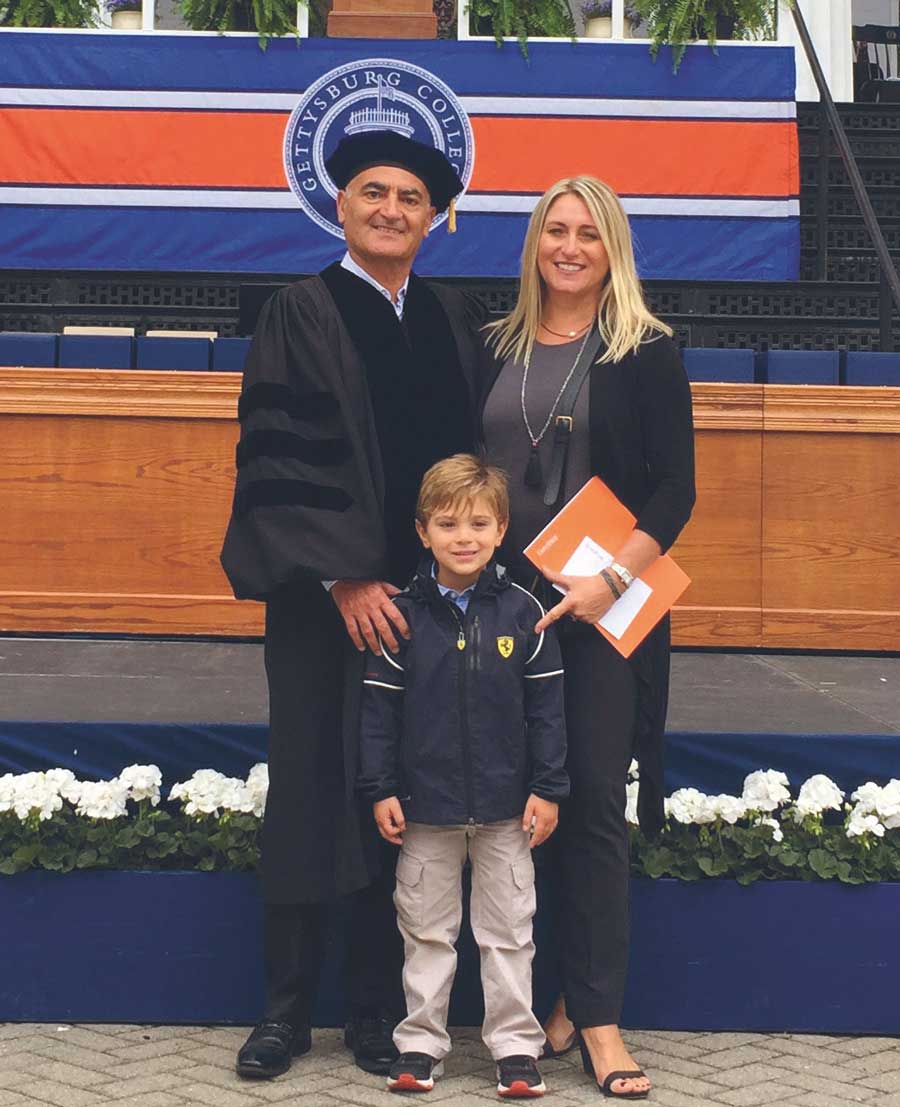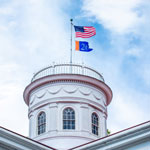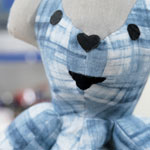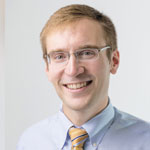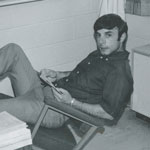
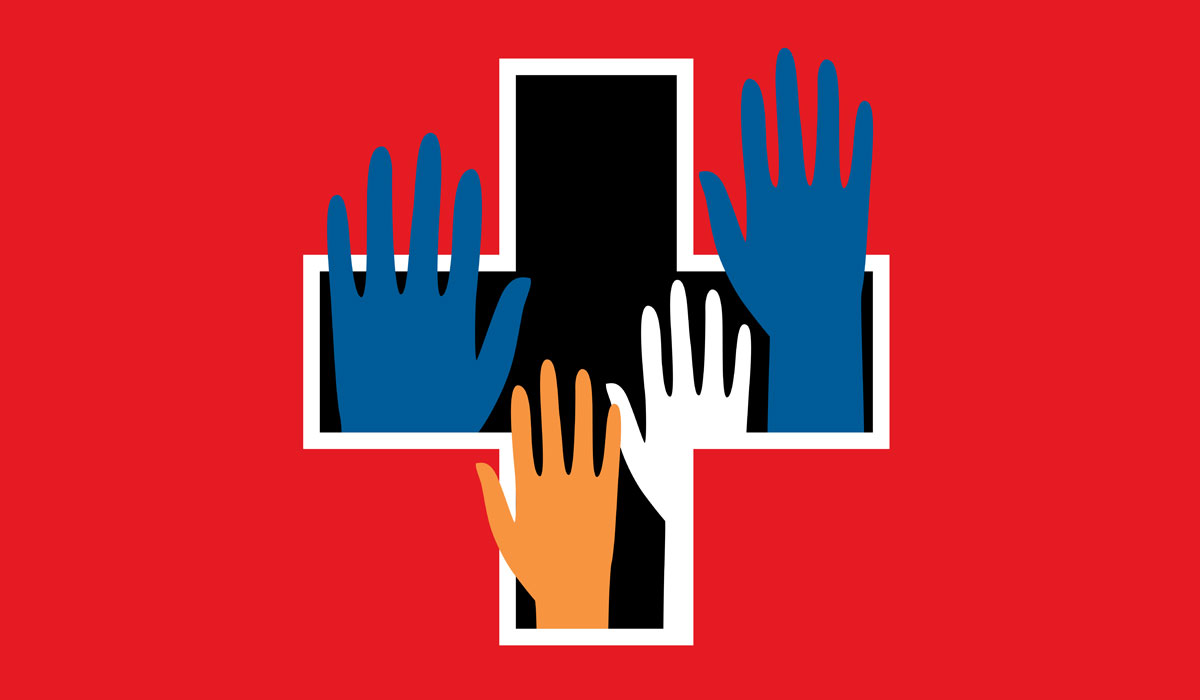
Brothers on the front lines
A man in his 50s arrives at Montefiore Medical Center in the Bronx at the beginning of New York City’s COVID-19 crisis. He hasn’t been sleeping. He’s acting strangely. His family is worried.
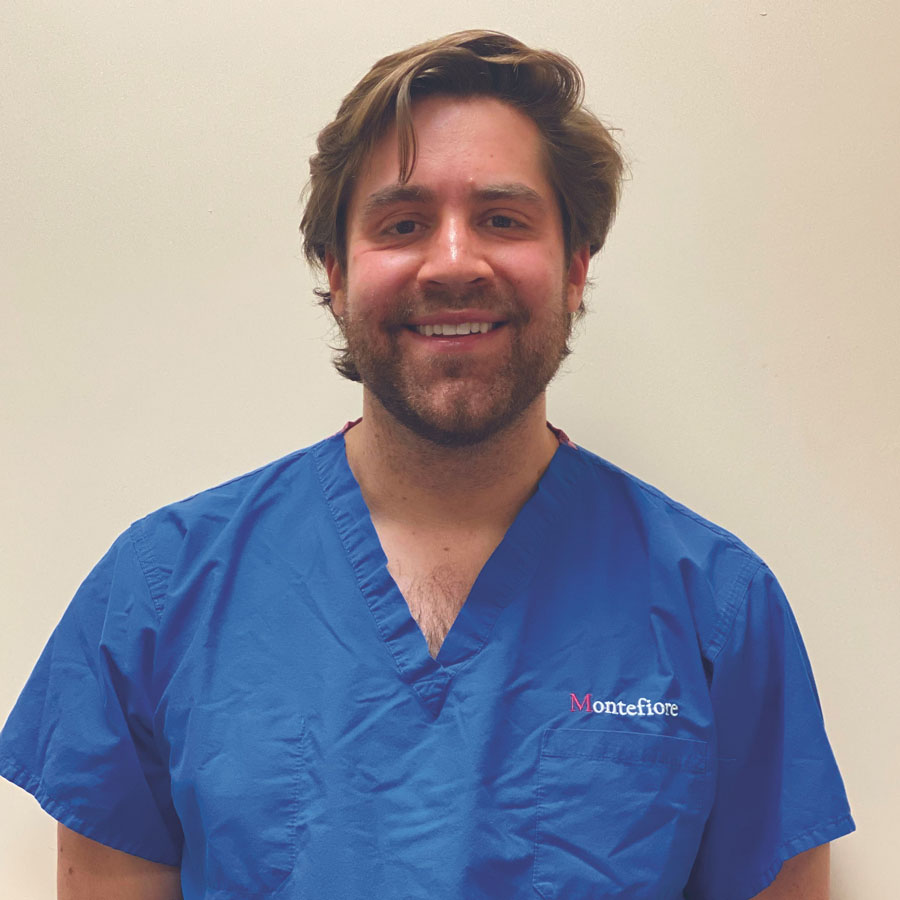
Ryan Flanagan ’10 is a second-year psychiatry resident. He examines the man and confirms he’s having a psychotic episode. But the man is also COVID-19 positive. It’s early on in the pandemic outbreak, and little is known about the disease. This man, however, seems physically well. No fever. No respiratory distress.
“The easy answer is that the patient is having a manic bipolar episode and he should be medicated immediately,” said Flanagan. “However, he’d never had mental health issues in the past and I’d been hearing about neurological and psychiatric effects as a result of COVID-19. I asked to take a pause before we made a diagnosis.”
Flanagan got to work. “I learned to be unafraid to pursue answers that might not fit the accepted mold at Gettysburg,” said Flanagan, who majored in psychology. After reading emerging research and thinking outside the box, he made a different diagnosis: COVID delirium encephalopathy, whereby COVID-19 alters brain function, usually temporarily.
Upon receiving treatment, Flanagan’s patient recovered from COVID-19 and his encephalopathy improved. No more psychosis. No aggression. He could sleep again. By rethinking assumptions and challenging convention, Flanagan likely saved his patient from a lifetime of mood stabilizers and antipsychotic medications that can have serious side effects.
As the epidemic continued to rage in New York City, Flanagan’s hospital became inundated with COVID-19 patients. Taxed, the Bronx hospital converted its lecture hall to patient treatment space, and Flanagan was redeployed to internal medicine.
“It had been 10 months since I’d done internal medicine,” explained Flanagan, who was shocked by the level of COVID-19 need. “It was definitely a stressful and anxiety-inducing time, but my liberal arts education prepared me to ask for help and collaborate in order to get the best information possible and to serve people to the best of my ability.”
Today, Flanagan is back in the psychiatry department treating outpatients and providing teletherapy to maintain distance until COVID-19 is eradicated.
Meanwhile, approximately 1 ½ hours west of New York City, Aaron Fedor ’10, an emergency room resident in Pennsylvania and one of Flanagan’s closest friends and a Lambda Chi Alpha fraternity brother, was also treating COVID-19 patients on the front lines. His first COVID-19 patient was from New York City.
“He was a younger gentleman with his only risk factor being obesity,” explained Fedor, who was on rotation in the ICU when COVID-19 hit. “He presented with a headache and was incidentally found to be hypoxic… and within 48 to 72 hours, he was intubated and on a ventilator. Unfortunately, as more and more patients presented, this story became less unique.”
In fact, Fedor had to intubate many patients, and had many difficult conversations with patients and their families. It wasn’t easy.
“It was moments like these… that made me appreciate my Gettysburg education. My undergraduate experience provided me with the training to communicate simply and effectively and take into consideration language preferences, … religion, and cultural sensitivities—all skills and knowledge I wouldn’t have acquired without my liberal arts education.”
In truth, Fedor likely would not have become a doctor at all if not for Gettysburg and the lifelong friends he made there. The former philosophy major and Spanish minor started his career in health care policy, but a conversation with Flanagan, who was heading to medical school at Georgetown University at the time, changed Fedor’s trajectory.
“I knew I wanted to be involved in health care, but that conversation… made me realize how much I wanted to work with patients, and that it was possible for me to do that even though my background was not in the sciences,” he explained. “My other close friend and fraternity brother from Gettysburg, Dr. Jack Bostrom ’11, tutored me to prepare for medical school, while Dr. Josh Siner ’10 helped me navigate medical school to reach my goal of emergency medicine.”
Fedor expressed gratitude for his network of Gettysburg friends and fellow doctors: “I was thankful to be able to compare notes and support one another during this unprecedented time. If not for Gettysburg, I wouldn’t have been exposed to individuals as motivated as Ryan, Jack, and Josh.”
Answering the call
Gino Alberto ’79, P’06 was enjoying semiretirement in Florida when COVID-19 hit the United States. He immediately volunteered to help in the hard-hit Queens borough of New York City, mere miles from Ryan Flanagan in the Bronx. His 11 years teaching emergency medicine at Indiana University and decades of hands-on experience was a welcome addition to Elmhurst Hospital Center, often called by the media “the epicenter of the epicenter” of the American coronavirus outbreak.
“My brother said to me, ‘This is our generation’s World War II.’ It was a no-brainer for me to serve,” said Alberto, who remarked that Gettysburg instilled a sense of service in him.
Every day for weeks, Alberto donned his PPE for 10 to 12 hours a day and treated patients with varying severity, from those with minor illness to the critically sick who required airway support.
After decades in medicine, it was precisely this “variability” of COVID-19 that surprised him most. He explained, “We talk about older people being most at risk, and they are, but I saw people in their 40s who… deteriorated rapidly. While, personally, I have a friend in his 60s who had a fever for one day and then felt fine. It doesn’t always make sense… so it definitely kept me on my toes.”
As cases decreased at Elmhurst, Alberto moved to a 440-bed unit at the Billie Jean King National Tennis Center (the site of the U.S. Open), which had been converted for emergency overflow. When he was no longer needed in New York, Alberto returned home to his wife Karen Erickson Alberto ’79, P’06, whom he met his first week at Gettysburg College when he threw an apple over a wall and it landed at her feet. Alberto’s eldest daughter Christine Alberto Tryba ’06 is also a Gettysburg grad.
Reflecting on his experience, Alberto is quick to give credit to all of the “amazingly positive and brave mercenaries” serving patients in New York City, but also the Gettysburg College community who “came out in the hundreds to support.” Friends of his daughter, long-lost acquaintances…everyone wanted to help with PPE, donations, or support. Alberto sees this response as humanity at its best and something that runs through the veins of Gettysburg College as an institution.
Full-time student and COVID caretaker
While Gettysburg doctors were coming out of semiretirement or leaving their specialties to help on the front lines, Hannah Sheffer ’20, a biochemistry-molecular biology major, was juggling her senior year at Gettysburg with work as a nursing assistant on a medical surge floor at UPMC Hanover Hospital. When she first applied for the job at Hanover, COVID-19 was the furthest thing from her mind.
As the pandemic took hold, Sheffer remained committed to caring for her predominantly elderly patients without fear. She said, “Ultimately, I was serving patients as I always had, just with extra precautions.” She worked 12-hour night shifts (6 p.m. to 6 a.m.) twice a week when she didn’t have classes the next day until the afternoon. She’d use the hours in between to sleep.
“My experience as a nursing assistant solidified that I wanted to work in the medical field and have a positive impact on my community,” said Sheffer, who grew up in nearby York and spent a semester abroad in India. “My Gettysburg education and my time abroad taught me how important it is to think about those around me and how my actions affect others. That message has never been more important than now.”
Sheffer started nursing school at Salisbury University this fall and plans to work in fertility and reproductive technologies as a nurse practitioner.
Allocating antibodies
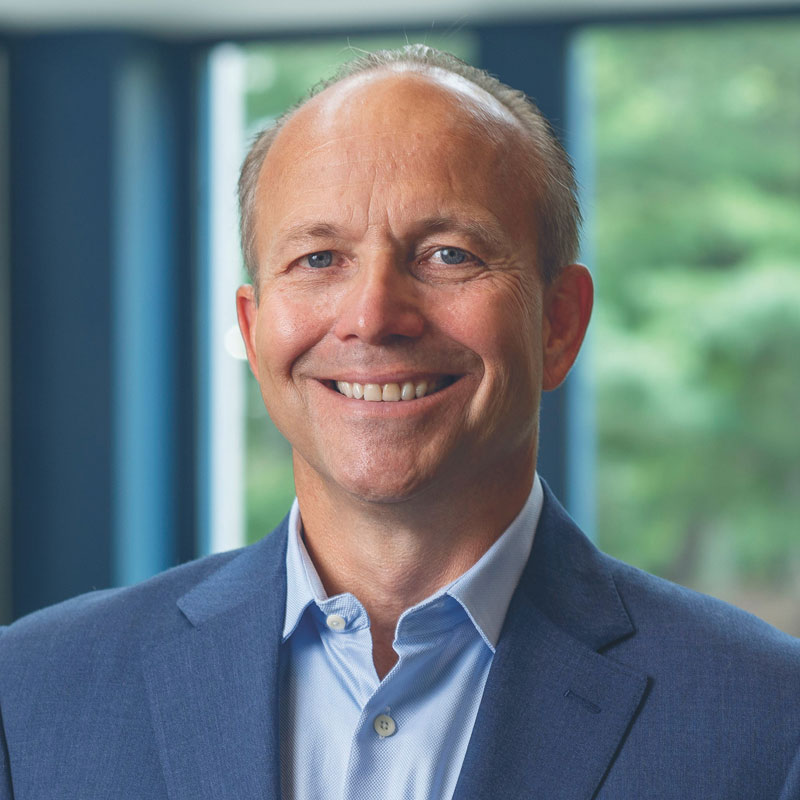
While some Gettysburgians were making split-second decisions to save lives on the front lines, others were behind the scenes building upon years of painstaking research to help save lives in the future.
“We wanted to do whatever we could to have the most impact in combating the virus, irrespective of the commercial benefit. In the early days that meant providing samples of our antibodies to those who could do the most with it on the testing and research front,” said Jim Fendrick ’84, P’10, ’19.
Fendrick leads Rockland Immunochemicals, a global biotech company founded in 1962 by Fendrick’s father. Also at the helm is COO Richard Smith ’83, and Fendrick’s daughter, Ashley Cush ’10, who heads up communications.
At the onset of the pandemic, Rockland noticed that an antibody it developed during the SARS outbreak in 2003 was becoming popular with laboratories. Both coronaviruses, SARS and COVID-19 behave similarly, and rather than develop a new antibody for COVID testing, labs investigated whether Rockland’s SARS version could be operationalized more quickly. Rockland was excited to help, donating the antibody to more than 30 labs in exchange for their research data.
Independent laboratories around the world confirmed that the Rockland antibody is highly effective in detecting COVID-19 and can be used in nasal, throat, and saliva tests. Rockland is currently in large-scale production of its antibody for use in rapid tests that can be manufactured and distributed widely.
“It means a great deal to us to be able to positively impact others and hopefully get the world out of this mess sooner rather than later,” said Fendrick, who fondly recalled his time at Gettysburg as a foundational experience that helped him develop the skills to run an international business.
Using research to deliver on testing providers
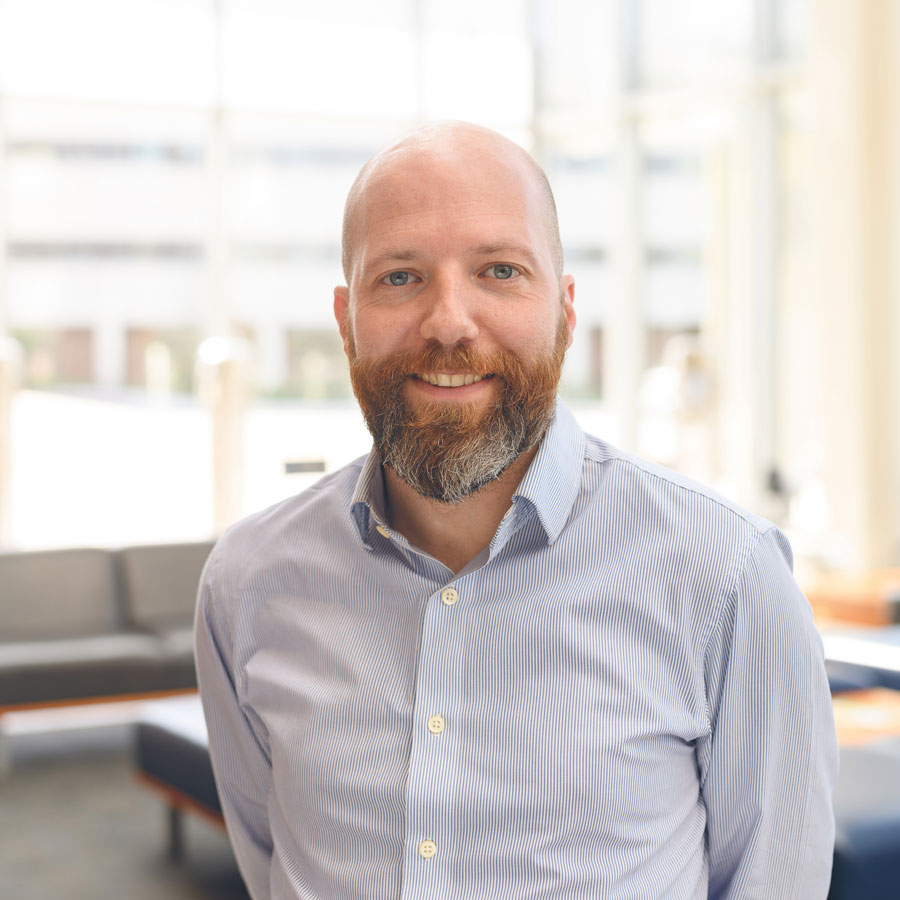
Vince Venditto ’03, assistant professor at the University of Kentucky in the College of Pharmacy, typically researches immune responses to different diseases and therapeutics to modulate those responses. But when the pandemic struck, Venditto’s lab switched gears to join the fight against COVID-19.
Research wasn’t always top of mind for Venditto: at Gettysburg, he was on a pre-med track. “It was actually my summer research work through Gettysburg that showed me that research was where I was meant to be,” explains Venditto. “Most summers, I was shadowing in an emergency room, but in my senior year, I did research with a laboratory at the National Institutes of Health with… Martin Brechbiel ’79. That experience, and working with Prof. Don Jameson in chemistry during my senior year, proved life-changing.”
Today, Venditto has zeroed in on an unmet need in eastern Kentucky: professionals who can do COVID-19 testing. “In Appalachia, there are few health care professionals.… In the context of COVID-19, that means residents have to travel a significant distance to get a COVID-19 test, which acts as a barrier to diagnosis, quarantine, and care,” said Venditto. But community pharmacies can break down that barrier: “Ninety percent of the population in the United States lives within five miles of a pharmacy. There are 120 counties in Kentucky and there is a pharmacy, if not multiple, in every one of them.”
This proximity led to Venditto’s lab partnering with two small community pharmacies to equip pharmacists with the resources and ability to do COVID-19 testing in the stores. The test swabs are then sent back to the University lab for processing. Not only does the partnership help the people of Appalachia, but it also provides the laboratory with important data to inform research and practice for the future.
“I think all of our large universities need to be thinking about independent community pharmacies in this way,” said Venditto, whose team recently published a letter in Science. “This has been such a unique time in history. Never before has science been the lead story on everyone’s mind.”
A gettysburgian on a government task force
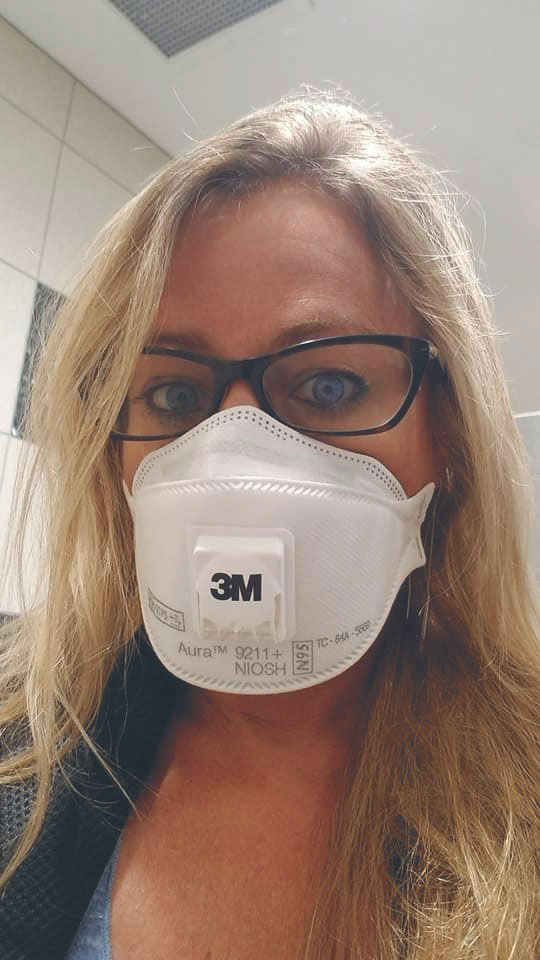
Liz DiNenno ’92 is at the Centers for Disease Control and Prevention (CDC) and has been working there for more than 16 years. Her position, when she isn’t working on the COVID-19 pandemic, is associate deputy director for surveillance, epidemiology, and laboratory sciences in the Division of HIV/AIDS Prevention. As COVID-19 activities ramped up at CDC, she was temporarily assigned to the Health and Human Services (HHS) Coronavirus Diagnostic and Testing Task Force under Assistant Secretary for Health Admiral Brett Giroir, often referred to as the “federal testing czar.”
“There are a lot of moving parts to testing for SARS-COV-2 (which causes coronavirus disease), and the supply chain is long and complicated,” said DiNenno, who majored in sociology at Gettysburg and got her PhD at Temple University. “As part of the task force, I talked to state health departments to see what kinds of testing issues they’re having and how we might be able to support. I also talked to test manufacturers to see whether there are delays in the chain and if we can help alleviate those. My team also acts as a liaison to the FDA and other federal agencies.”
Like her fellow Gettysburgians, DiNenno worked 12-hour days or more handling the “pain points” related to SARS-COV-2 testing. Nevertheless, she wouldn’t change it. “My job is to serve the American public and I know I’m doing that every day,” she said.
Service has always been a goal for DiNenno, but she certainly didn’t anticipate a future in science. “I went to Gettysburg thinking I would probably be a social worker. I’m a very idealistic person and quickly realized I enjoyed the pursuit of academics in sociology, women’s studies, and politics. I found my people at Gettysburg and, through our sociology department, learned the foundations for my current work, including how to analyze and understand data.”
DiNenno sees more 12-hour days in her future due to the direct and indirect effects of COVID-19 and predicts the disease will change the way we live for many years to come, including more teleworking, increased hygiene, and changes in the medical system. She encourages Gettysburg students to be part of that change by applying the “skills they learn at Gettysburg to find creative solutions to the pandemic and beyond.”
Gettysburgians stepping up—every step of the way
At every step of our nation’s response to the coronavirus, Gettysburgians have made unique and necessary contributions to patient treatment, research, testing, quality control, and resource distribution. Whether intubating a patient struggling to breathe, bathing an elderly COVID-19 patient, or developing critical coronavirus testing products, Gettysburgians are stepping up in a time of emergency and serving their community, country, and the world. These Gettysburgians embody what it means to unleash a positive impact on the world—what it means to Do Great Work.
As Fedor said thoughtfully, “Never have I ever been so intimately a part of something I knew was going to be significant in history forever.”
By Katelyn Silva
Photos courtesy of alumni
Posted: 05/03/21
